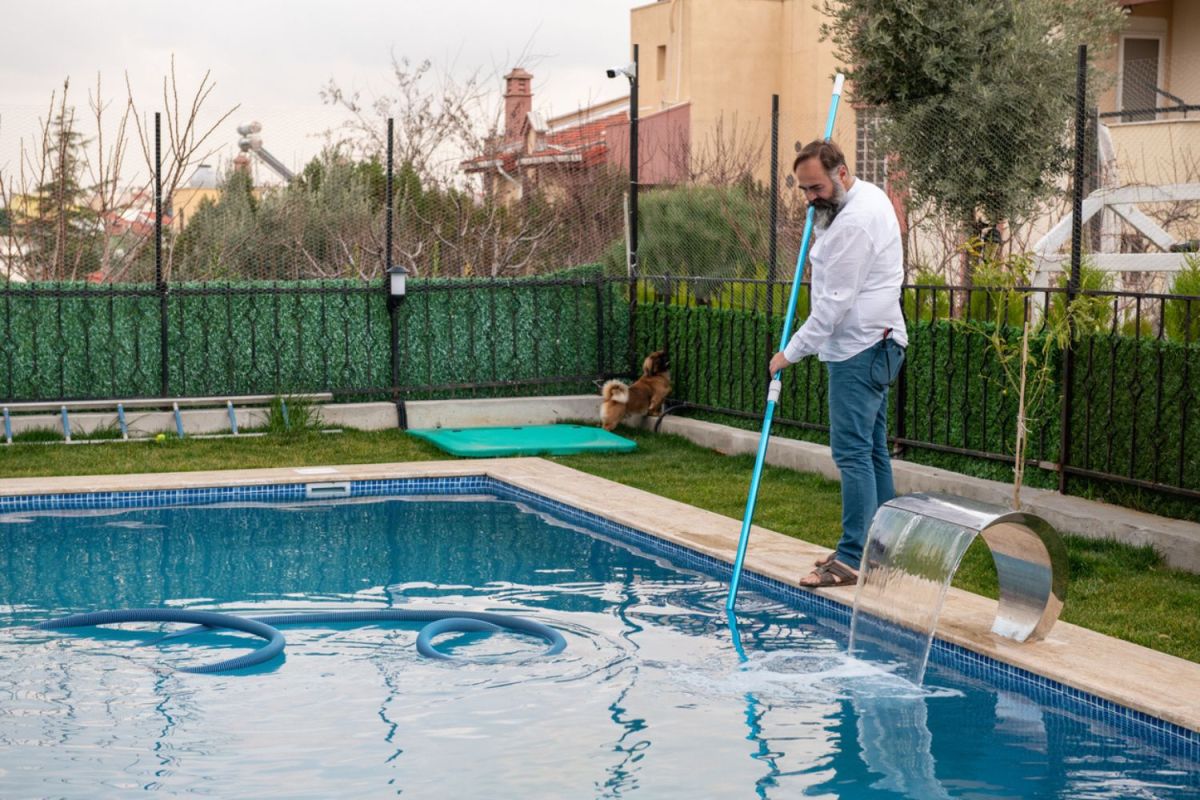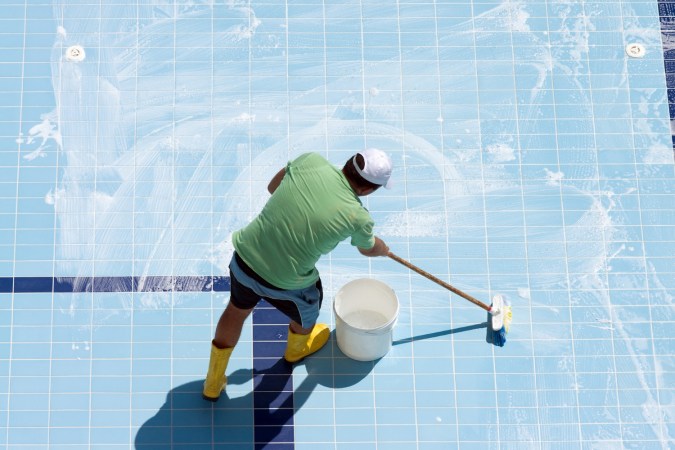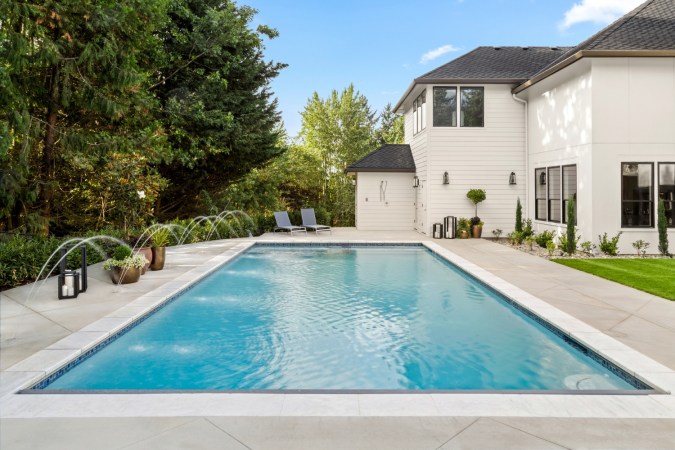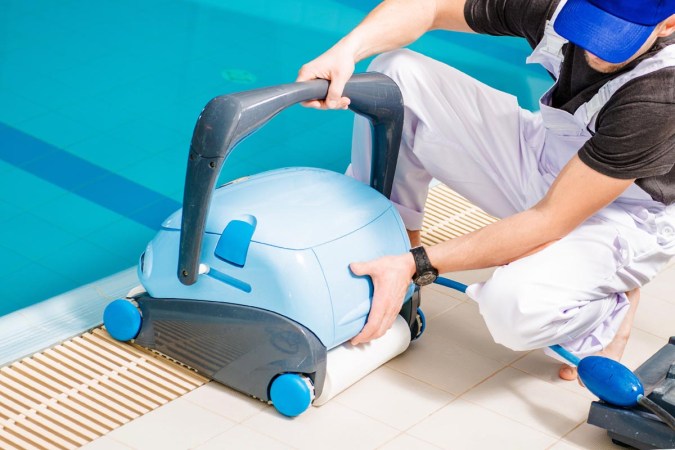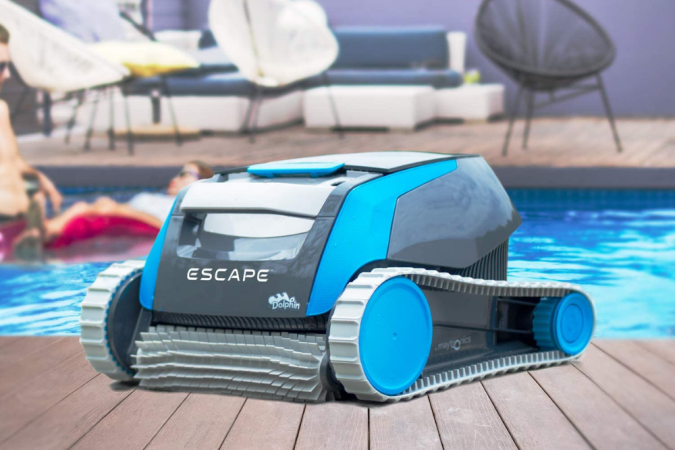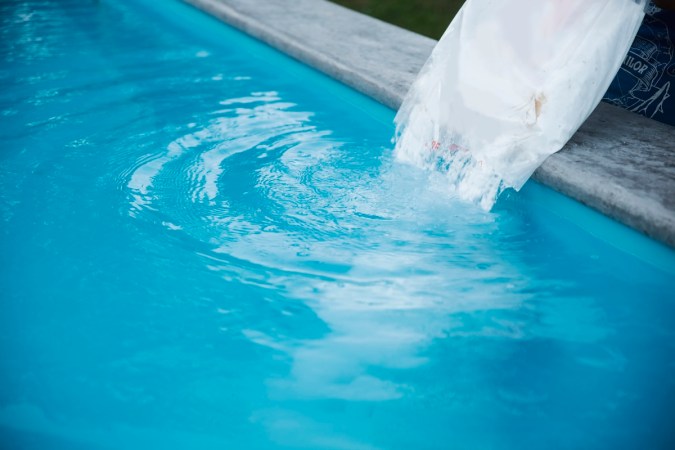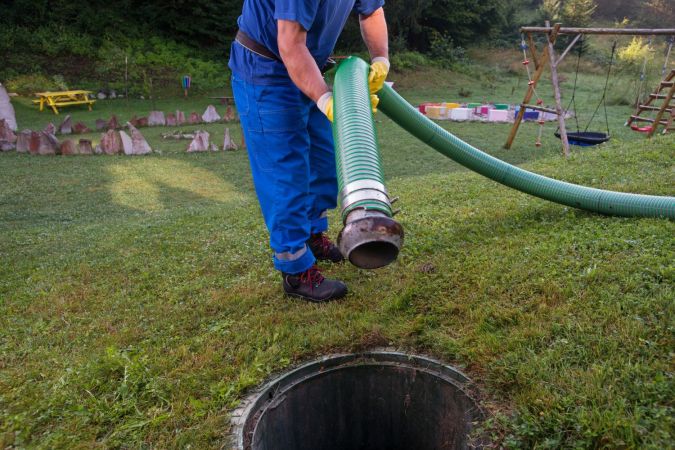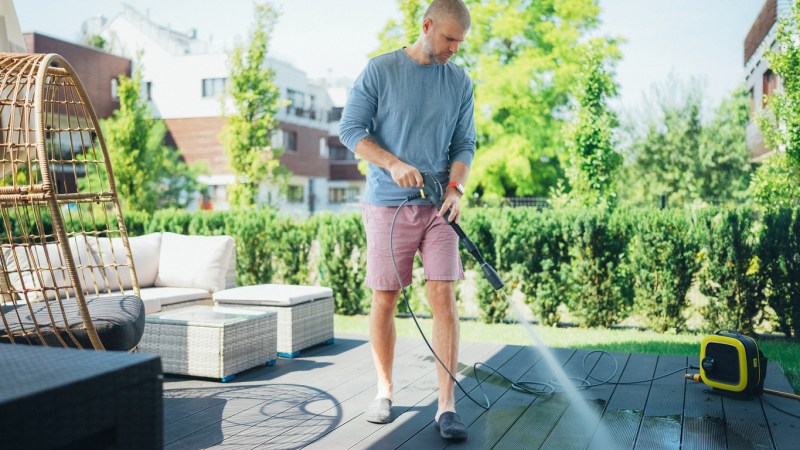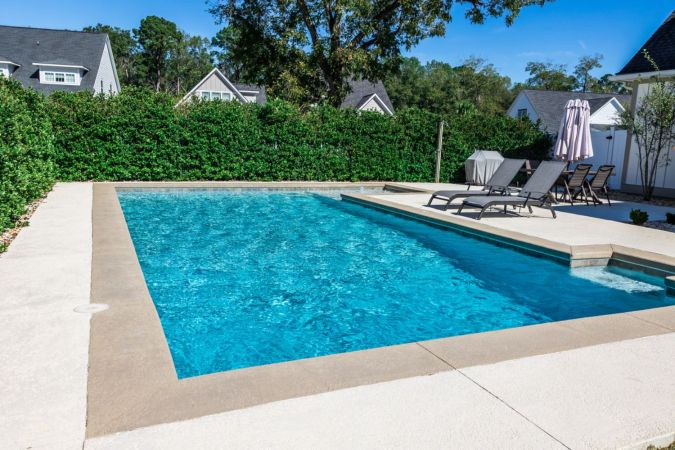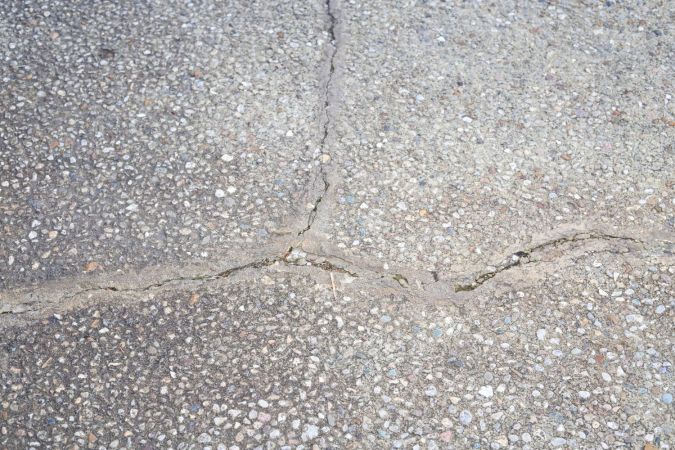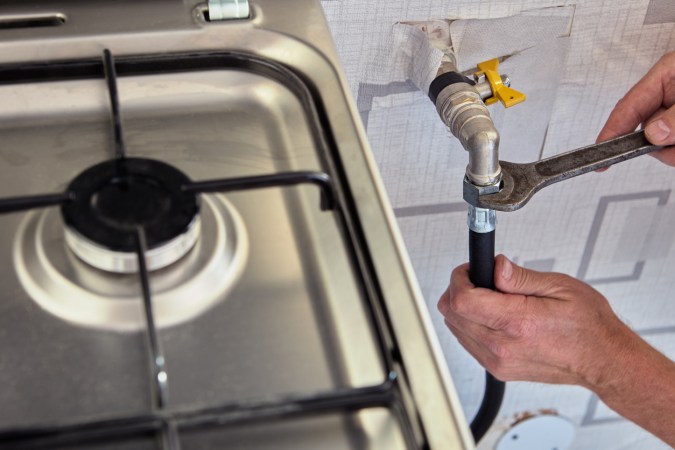We may earn revenue from the products available on this page and participate in affiliate programs. Learn More ›
Highlights
- It typically costs between $1,315 and $2,150 to start a pool-cleaning business.
- The exact start-up costs will depend on the business structure, the types of licenses and permits required, taxes, bonding and insurance, and equipment and supplies purchases.
- There are numerous benefits to starting a pool-cleaning business, including relatively low start-up costs, the ability to get daily physical activity, and a relatively strong demand for pool cleaners.
Many people dream of working for themselves rather than for an employer. Self-employment means workers are free to make their own schedules and put their own stamp on their business. But knowing what type of business to start can be tricky.
Entrepreneurs who enjoy physical labor and spending time outdoors may want to look into forming a swimming pool–cleaning company for their business venture. This type of business is well suited to first-time business owners for a number of reasons: There is relatively high demand for pool-cleaning services; these new-business owners can earn a decent amount of money early on; and a pool-cleaning business doesn’t require an enormous investment up front. According to Jobber, pool-cleaning business start-up costs typically range between $1,315 and $2,150.
Before starting their business, entrepreneurs will still need to do some planning. Learning how to start a pool-cleaning business involves a fair amount of technical information about both business and pool-cleaning services. A carefully written pool-cleaning business plan can help an entrepreneur make the right choices to start a successful business, but understanding the components of the cost of getting started will make it easier to be successful from the beginning.
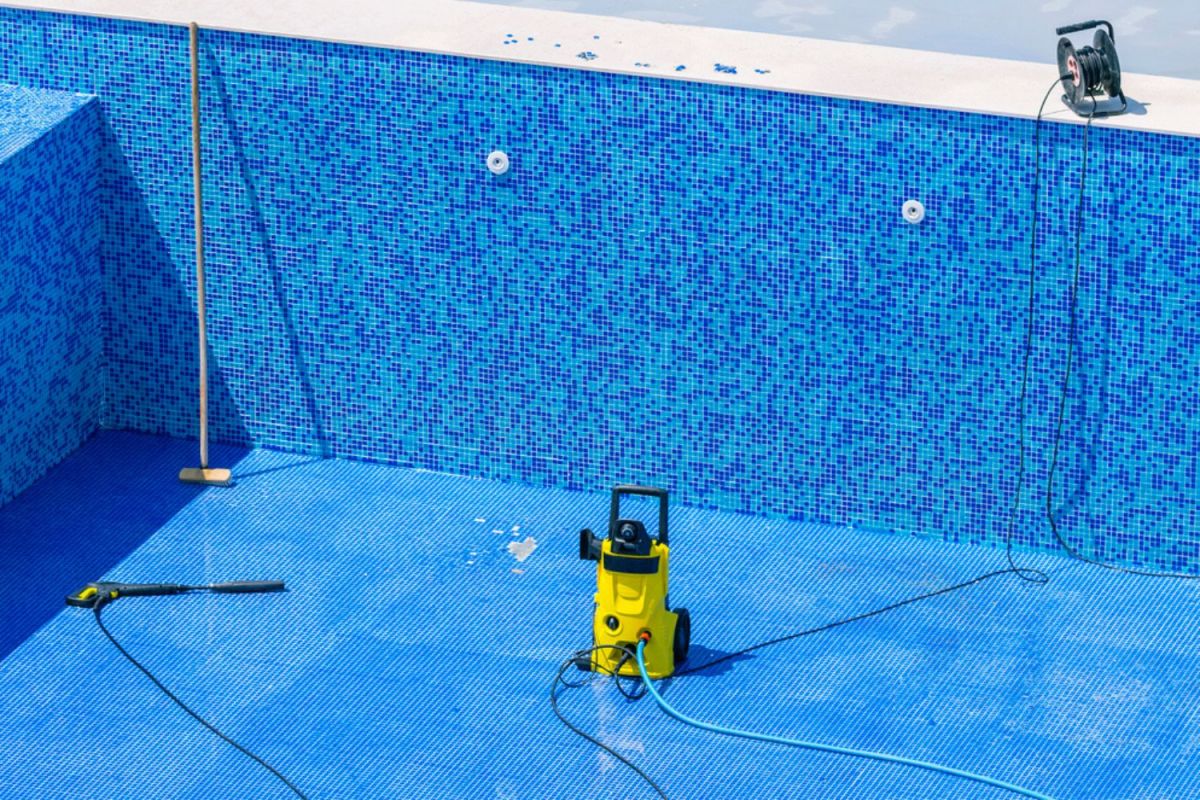
Key Cost Factors
The cost of starting a pool-cleaning business is lower than that of many other types of enterprises. Rafi Friedman is the CEO Coastal Luxury Outdoors, a pool company based in Ponte Vedra Beach, Florida. He says, “If you’re willing to do the work yourself, your initial investments don’t have to be massive; you’ll need a vehicle, a quality pool cleaner, and a few other incidentals like a skimmer and perhaps pool chemicals. [You] can get everything you need (assuming you already have the car) for less than $1,000.” The tools, chemicals, and a method of transportation are critical elements of starting a swimming pool–cleaning business, but there are other costs to consider as well.
Business Structure
Businesses can be structured in a number of ways, each of which has different financial, taxation, and legal implications. This aspect of business planning is often the most complex for new business owners, and it can affect almost everything about the cost structure of the business at start-up, tax time, and in the event of a lawsuit or debt situation.
- A sole proprietorship is the least expensive type of business structure in terms of start-up costs. It has low or no registration fees and uses the owner’s Social Security number for registration and tax purposes. However, since there is no separation between the owner and the business, any debts the company incurs or legal action taken against the company is directly tied to the owner. This can endanger the owner’s other assets including savings and property. A sole proprietorship is a simple and inexpensive way to start a pool-cleaning business, but it could be unexpectedly costly down the line.
- A partnership is similar to a sole proprietorship, but the responsibility for the business is shared between two or more owners. This can spread out the liability for debt or legal action, but it still leaves the owners’ personal assets at some risk.
- A limited liability company (LLC) is a step up in costs to register, averaging about $50 to $500 based on the state in which the company operates. Registering a business as an LLC separates the business’s assets and debts from those of the owner. It allows the business to operate formally as its own entity and protects the personal assets of the owner or owners if the business is sued or falls into debt. The best LLC services (such as LegalZoom or Northwest Registered Agent) can help business owners set up their LLC correctly for a small fee, which may be particularly advisable for new or first-time business owners.
- A corporation is the most complex type of business structure and is also the most expensive to register. This type of business structure is intended for larger businesses, as there are more guidelines and regulations for profit management and earnings. A corporation is not necessarily the best option for a new start-up, but it is something for business owners to consider if the business really takes off.
Business Licenses and Permits
The type of licensing needed for swimming pool–cleaning services will vary based on the state in which the company will operate. Some states require a contractor’s license, while others require a general business license. Certain states require pool cleaners to carry certifications such as Certified Pool and Spa Operator (CPO) or Certified Pool and Spa Service Technician (CST). Entrepreneurs will want to take the time to research local requirements so that they have time to acquire any necessary certifications before registering the business.
It’s also important for entrepreneurs to consider necessary permits when starting a pool-cleaning business. Maintaining pools requires the use of chemicals, and state and local regulations may require permits to use and store certain chemicals such as chlorine or bromine. Chemical permits may be required by the government, the health department, or the environmental protection unit for the handling and disposal of toxic chemicals. Costs for these licenses and permits will vary by jurisdiction.
Taxes
Depending on the structure of the business, owners may be considered self-employed or salaried employees of the business. Either way, there are tax ramifications they will want to consider. As a self-employed worker, owners will be required to pay a self-employment tax, along with tax on their income, in estimated installments through the year to avoid being fined when taxes are filed. If the owner is an employee of the business drawing a salary, and especially if there are any employees, the required tax payments become more complex. It’s a good idea for an entrepreneur to check in with a financial professional when setting up the business to make sure these responsibilities are clear. This way, they can avoid fines or sudden tax payments due at tax filing time.
Bonding and Insurance
Bonding and insurance protect a business financially in case of a loss, theft, weather damage, vandalism, or legal action. The best small-business insurance companies (such as NEXT or Thimble) will be familiar with the options available for a small business and will be able to tailor a policy especially for the business’s needs, reducing the overall pool-cleaning business insurance cost. There are several different types of insurance a small-business owner will want to consider.
- General liability insurance provides financial protection for a business owner in the event an accident occurs at a jobsite that the business is liable for. If an employee is cleaning the pool and the homeowner’s child trips over a hose reel or piece of equipment and is injured, or an employee accidentally breaks a piece of lawn furniture, the liability insurance will help cover the cost up to the limits of the policy. The average annual cost is between $500 and $1,500.
- Workers’ compensation insurance is required by law in most states for businesses that employ workers. This coverage will pay for medical care and lost wages for employees who are injured on the job. Costs will vary significantly based on the number of employees and what type of work they do, but $500 to $2,000 per year is a typical range.
- Commercial property insurance protects office and storage space associated with the business from damage or loss caused by theft, vandalism, fire, wind, lightning, and other perils, but it usually excludes flood damage. Costs vary based on the amount and type of property, deductibles, and coverage maximums.
- Commercial auto insurance is similar to regular auto insurance—if a business-owned vehicle is involved in a collision or otherwise damaged, this type of insurance can help cover the cost of repairs. Commercial auto insurance also covers liability (property damage or injuries to others) if a business-owned vehicle is involved in an accident.
- Umbrella policies can be added to a liability policy to increase the total amount of liability coverage.
- Some of these types of insurance can be bundled together in a business owner’s policy, reducing the overall cost of coverage.
In addition to insurance, a pool-cleaning business owner will want to consider purchasing a bond for the business. A bond is a policy that protects against client claims of error, poor work, incomplete work, or fraud. In the event of a claim, a surety bond pays the client, then the business reimburses the company based on the terms of the contract.
Tools and Equipment
Having the right tools and equipment can make pool-cleaning easier, allowing businesses to take on more jobs. However, purchasing tools and equipment when starting a business can be a slippery slope of spending. It’s exciting to start a business, so the temptation to buy the best and newest tools on the market—all of them—can be strong.
Cost-conscious business owners will want to determine which tools are actually necessary to begin. They’ll then want to choose a good, quality product and add tools as needed, upgrading the quality when it’s necessary and affordable. To start, entrepreneurs can plan on purchasing the testing kits, cleaning equipment, safety equipment such as goggles and gloves, and basic repair tools and supplies. It’s inadvisable to spend much money on pool-specific materials such as filter cartridges, sand, or pump parts at the outset. Those materials can be purchased once a particular client’s needs are known and incorporated into the cost of their service contract.
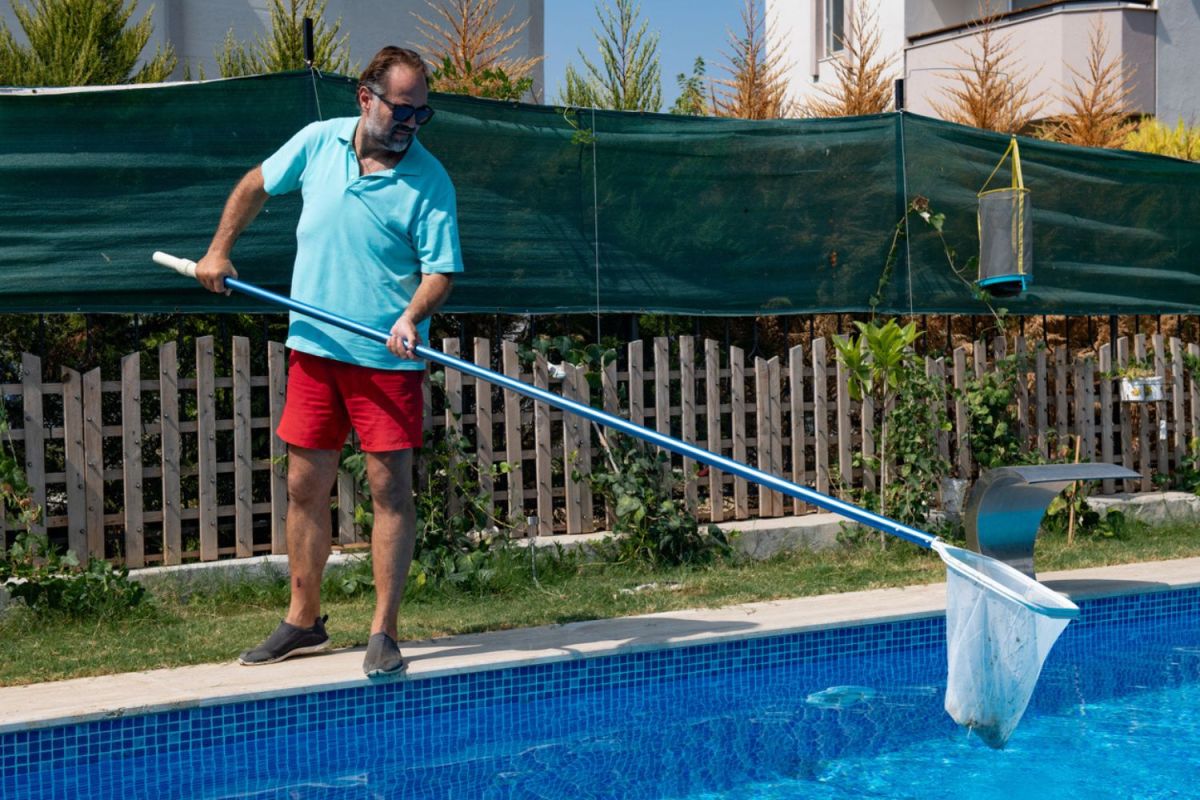
Additional Costs and Considerations
Beyond the materials needed to legalize and protect the business and actually complete the work, there are a few other practical matters that will require some investment.
Business Software and Technology
To run a pool-cleaning business effectively, business owners will want to invest in software that can manage appointment scheduling, invoicing and payments, inventory, spending, and client communication. Business owners will want to investigate as many options as possible through free trials to see what best meets the needs of their business. Then they can purchase the best option and use it consistently to keep the business organized and running smoothly.
Depending on how the business is structured, entrepreneurs will want to consider the technology that will be most useful in helping the business run. Tablet computers can travel to jobsites with employees for scheduling, client notes, and invoicing. A primary computer in a home office can help organize the business, and business-provided cell phones can keep employees in contact with each other. Tech needs will vary based on the size and structure of the company, but consistency is important to keeping everyone on the same page.
Marketing and Advertising
It might seem as if marketing and advertising should be as easy as pinning up some flyers on public bulletin boards and posting ads on social media. But Friedman says that this is not the place to skimp to save cash, because it’s one of the most important steps to building the clientele that will help the business succeed. “Marketing yourself is absolutely the key. If you’re willing to do the work yourself, your initial investments don’t have to be massive. The hard part, he says, is standing out. “You’re competing with established businesses, neighborhood kids looking to make a few extra bucks, and people who are willing to do the work themselves. Focus on getting your name out there, especially on social media, and make sure to throw in value-adds like cleaning pool decks and furniture.”
A savvy business owner who is familiar with social media platforms can create accounts and make connections to other business owners and adjacent lines of service without incurring cost. Similarly, joining and posting on several online home service marketplaces (such as Angi, HomeAdvisor, or Thumbtack) is an inexpensive and effective way to find customers. It’s worth paying for some print ads and setting up a booth at local events to make the business name familiar to the community.
Where is it worth spending on marketing? If there isn’t someone in the business who can manage the online and print advertising, business owners will want to hire someone. But almost more important, the business needs to have a brand: a catchy but serious name, a memorable logo, and definitive colors to splash all over the ads, the uniform shirts and hats, and the side of the company vehicles. Hiring a pro to help set up the branding is a worthwhile expense.
Equipment Storage and Maintenance
A one-man shop can probably start out storing equipment in a secure garage, or possibly a backyard shed. As the business grows to include multiple vehicles, the vehicles can be used to store materials—but the vehicles themselves will need to be parked somewhere secure. Leasing a small storefront with storage in the back will enable the business to store cleaning supplies and chemicals, extra tools, and eventually maintenance supplies purchased in bulk to reduce costs.
Office Space and Utilities
For some new business owners, the office space is the front seat of a car and a dining room table, but as the business takes off, it’s key to have a dedicated location to store records and files. Even if everything is computerized, a business needs to have an organizational system that doesn’t involve receipts on the floor of a car. Home offices are perfectly legitimate and may result in a tax deduction, including the cost of utilities used for that portion of the home. Larger businesses may want a lease that includes office space and storage space together. Budgeting for the lease and the cost of utilities and insurance on that space will add to the start-up costs.
Staff Wages
If the pool-cleaning business is busy enough to need additional employees, the start-up costs are higher in general. The owner will need to invest in multiple sets of equipment, multiple vehicles, and additional insurance. Business owners will also need to include the wages for those employees in the business plan. Paying fair wages will cost more, but it will likely also result in more reliable and hard-working employees.
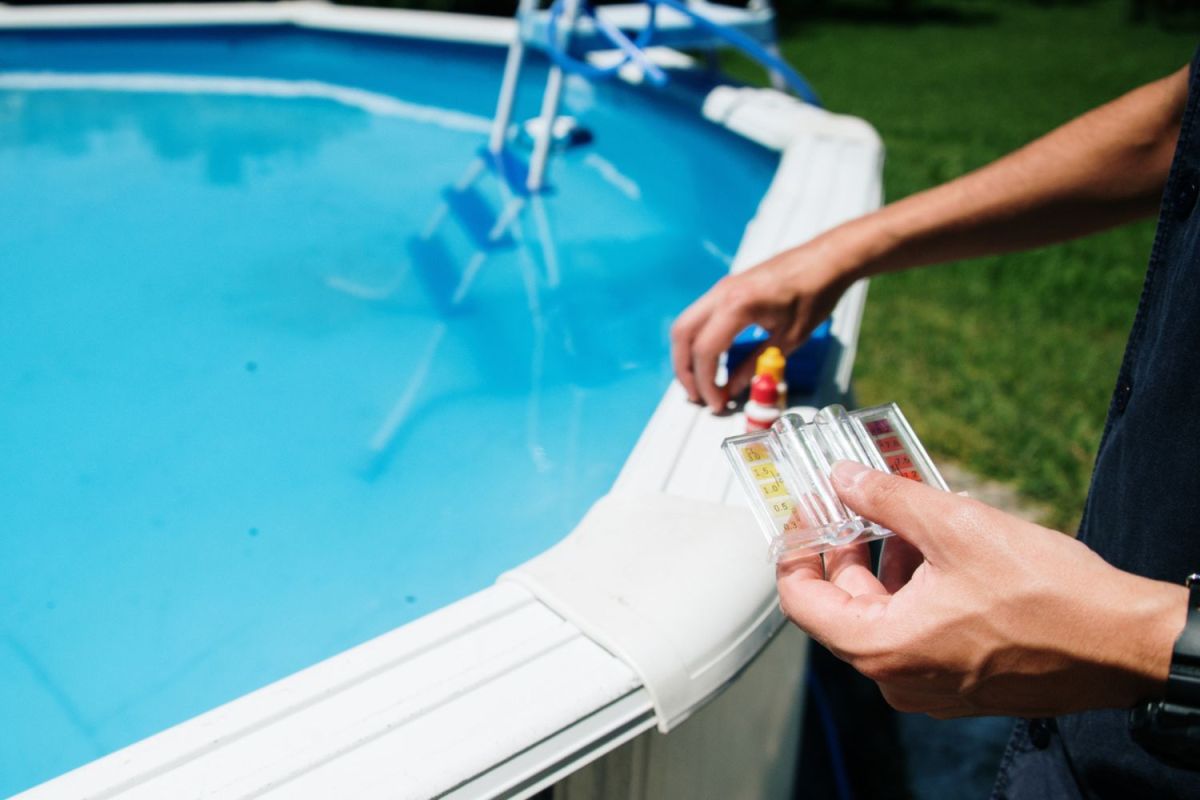
Cost by Type of Equipment
Equipment costs can have surprisingly wide ranges. Much of the basic cleaning equipment and some of the chemicals can be purchased for shockingly little money at discount and closeout stores. But while equipment of that caliber is likely adequate for a homeowner to clean their pool themselves for a season or two, it won’t last as long for a professional cleaning multiple pools each day. That said, there’s no need for an entrepreneur to buy the most expensive variation of any particular tool. Instead, they’ll want to look for a balance between price and quality.
Cleaning Equipment
Cleaning equipment doesn’t need to be fancy, but it does need to be sturdy, easy to use, and ergonomically sensible for the people using it. Critical tools to have on hand include the following:
- A heavy-duty skimmer, costing between $20 and $200 depending on length, brand, and weight;
- A telescopic pole with an algae brush, corner brush, and sidewall brush heads, costing between $10 and $50 each; and
- A pool vacuum and hose: manual vacuums can cost as little as $50 or as much as $300, while automatic vacuums range between $200 and $1,500.
If the company will offer pressure-washing services, the owner will also need to invest in a high-quality pressure washer to clean pool decks, fences, sidewalls of above-ground pools, and poolside furniture.
Chemicals and Testing Kits
Pool chemical testing kits and testing strips generally cost between $10 and $30 for a basic kit, or $100 to $300 for more elaborate digital testing kits. Pool-cleaning chemicals, including chlorine, pH and alkalinity increaser and decreaser, algaecide, and shock are necessary to keep on hand in quantity, and for every appointment. Owners will want to do some research and find a trustworthy, quality supplier and form a relationship for the best balance of quality and pricing. Pool chemistry is absolutely everything: When a pool is balanced, algae is less likely to grow, mold and mildew are less likely to form, and the pool stays clean for longer. An unbalanced pool gets dirty quicker and is a genuine hazard to the skin, hair, and eyes of the people swimming in it, so entrepreneurs will want to select a good supplier and lay in a stock.
Pool Repair and Maintenance Tools
Not all of the best pool-cleaning services offer pool repair. If it’s not part of the business plan, that’s fine, but it’s not a bad idea for a business owner to keep some basic supplies on hand. If repair is included in the services offered, a more robust collection of maintenance supplies and replacement parts are necessary. Basic pool repair supplies, such as patch kits appropriate for different pool materials and spare parts for pumps and hoses, and spare gaskets and washers are easy enough to stock without a large investment. Maintenance supplies including sand and replacement filters can be stocked (likely purchased from the same suppliers who provide the chemicals) as needed based on client needs. More specific repair parts such as pumps and filters can be added based on the specific needs of the pools on the company’s roster.
Vehicles
Once the supplies have been purchased, they have to get from pool to pool. Because the tools and equipment aren’t particularly large or heavy, a small business could simply use a spacious personal vehicle or pickup truck. Entrepreneurs will want to keep in mind that the chemicals needed to clean and balance a pool can be caustic and may produce fumes once opened, so leasing or purchasing a vehicle or vehicles to store and transport materials will eventually be necessary. This is likely to be the largest expense of starting a pool-cleaning business, but there are tax benefits to having a commercial vehicle, which will offset the cost somewhat.
Benefits of Starting a Pool-Cleaning Business
Unlike some industries, pool-cleaning doesn’t require a degree or any proprietary equipment. Along with some know-how and careful planning, a hard worker can take a course or two for certification and get started. But why is a pool-cleaning business appealing? There are several benefits that make this type of business a good plan.
Low Start-Up Costs
While some businesses require an enormous outlay of cash to cover vehicles, premises, and equipment, a pool-cleaning business can be started with a plan and a relatively small collection of simple tools. While heavy-duty tools will eventually be needed as the business takes off, basic equipment and a lot of energy and elbow grease are what’s needed at the start, so a committed entrepreneur can start a pool-cleaning business without a lot of capital investment.
Daily Physical Activity
Scrubbing, vacuuming, and skimming is physical work, not to mention hauling hoses, loading equipment, and carrying chemicals. Some pools have unusual shapes that require contractors to contort themselves to get just the right angle to scrub. There’s no need for a pool-cleaning technician to hit the gym after work when they’ve spent the whole day bending, stretching, leaning, and cleaning. Getting that kind of physical exercise outside in beautiful warm weather provides both a physical and mental boost.
Relatively Strong Demand
Pools get dirty, and they get dirty fast. Grass clippings, leaves, and debris from trees—pretty much anything that is in the yard—will end up in the pool, especially if kids or pets are involved. But even if nobody swims in the pool, pollen and airborne particles land in the water, and where there is heat and water there can be mold, algae, and mildew. Every pool that isn’t emptied each night needs to be cleaned and have its chemicals maintained. While some pool owners choose to manage this on their own, it can easily become tiresome or overwhelming, so reliable, hard-working pool cleaners are in demand anywhere there’s a season warm enough to swim. During colder weather, commercial and private indoor pools need service from pool maintenance companies even more.
How to Save Money
The start-up cost of a pool-cleaning business doesn’t have to be huge, but for a new business owner, every small expenditure can seem like it’s too much. There are several ways for entrepreneurs to save money at start-up, including the following.
- Start small: It’s inadvisable for an entrepreneur to jump in with four vans and rafts of equipment and employees before there’s a client base in place.
- Look for deals. New business owners can ask suppliers for bundled prices when purchasing multiple categories of supplies. Some suppliers may even offer a pool-cleaning business starter kit with the necessary components.
- Don’t quit your day job. Entrepreneurs just starting their pool-cleaning business may want to keep their full-time job for a time. Treating a new pool-cleaning business as a side hustle allows for marketing and building a brand name and customer base while there’s still another source of income.
- Consider purchasing a pool route from a broker. While there’s an associated cost, a pool route provides a solid customer base from the start so the business isn’t starting from zero.
- Spend what’s necessary for quality. It’s inadvisable to save money by choosing inferior or outdated technology or supplies. This is because the inferior products will become obsolete or break down and require replacement.
Questions to Ask Before Starting
Starting a new business is a risk, both financially and emotionally. There are several questions to ask before starting a business, and those questions apply to pool cleaners as well as other professions. Asking the right questions before the business opens can make the difference between success and failure. These are questions a pool-cleaning business owner will want to have answers for prior to opening their doors.
- Is the market in the area just right for starting a pool-cleaning business, or is it too full of competitors?
- Is the pricing plan competitive with others in the market, and is it formatted in a way that makes it easy to compare the prices with those of other swimming pool–cleaning companies?
- Can I manage this on my own, or do I need to consider a partner?
- Will the start-up costs drain my bank account, or will I have some savings as a backup?
- Do I need to consider financing or a small-business loan?
- Is there a plan in place in case the business struggles?
- What steps are mapped out to cut costs if profits are less than expected?
FAQs
Opening a pool-cleaning business is an exciting step to take, especially for those who love being outdoors and the satisfaction of keeping a pool in tip-top shape for its owners to enjoy. There are a lot of things to consider, including how to price the work, whether or not the business can be profitable enough to be worth it, and how to schedule jobs. Entrepreneurs will want to consider some common questions and their answers to help them get started on their research as they consider pool-cleaning business start-up cost.
Although DIY pool-cleaning can decrease pool maintenance costs, a novice pool owner who is cleaning their own pool can expect to take well over an hour each week to get the pool truly clean and balanced. An experienced, practiced pool cleaner using professional-grade tools can get the job done well in under an hour, especially if they’re doing a full scrub-down monthly so the weekly maintenance takes less time. Part of cleaning the pool also means balancing the chemicals and changing the filters, and experienced pool cleaners know how to get the chemicals just right to extend the amount of time the pool can stay clean between treatments.
A pool cleaner’s overall compensation will depend on many things, including location, experience, and business acumen, but most pool cleaners in the United States make between $46,000 and $83,000 per year, averaging out around $62,000. This includes tips, bonuses, and profit-sharing, so the actual take-home salary might be a bit less. Pool technicians are more likely to be paid hourly, averaging around $19 per hour.
It would be reasonable to expect that the best place to start a pool-cleaning business would be in a location where there are pools in every yard, but many of those areas are saturated with more pool-cleaning businesses than they need. Surprisingly, some of the best states to start a pool-cleaning business are in cooler climates. According to Zippia.com, the combination of salary and competition makes North Dakota, Hawaii, and Connecticut the most auspicious places for pool service technicians. Those states have some of the highest salary potential along with fewer pool-cleaning businesses to compete with, making it easier to stand out and find customers.
Jobber, ZenBusiness, FinModelsLab, Glassdoor, Indeed, Zippia

